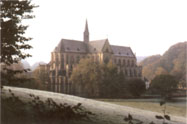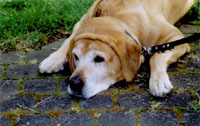

Andreas Sievers studied biology, mathematics and philosophy at the Universities of Münster (Germany), Innsbruck (Austria) and Bonn (Germany). His teachers S. Strugger and W. Schumacher, and especially J. Pieper (one of the most respected and honored philosophers) strongly impressed and influenced his way of thinking and his scientific interest. Promotion (Dr. rer. nat.) 1958; habilitation 1967 in botany at the Faculty of Mathematics and Natural Sciences of the University of Bonn. Professor since 1970; in 1972 he has been appointed chair of the Botanical Institute at the University of Bonn. In 1976, he declined an offer to take the chair of the Botanical Institute of the Tierärztliche Hochschule Hannover. He served the University as Dean of the Faculty of Mathematics and Natural Sciences and as an elected member of Senat and Konvent. From 1984-1992 he was also engaged as a referee in biology for the Deutsche Forschungsgemeinschaft, and since 1990-1998 he was a member and head of the Advisory Board "Forschung unter Weltraumbedingungen" of the Deutsche Agentur für Luft- und Raumfahrt-Angelegenheiten (DARA, Bonn, now Deutsches Zentrum für Luft- und Raumfahrt, DLR). In 1988-1991 he was a member of the Life Sciences Working Group of the European Space Agency (ESA), Paris, France; 1999, and in 2004, Consultant of the NASA Botany Panel, Washington DC, USA; In 2000 and 2003, he was a Consultant at the University of Crete, Haraklion, Greece. 1996-1999 he served as a member of the Governing Board of Directors of the American Society for Gravitational and Space Biology. His scientific research was supported by DeutscheForschungsgemeinschaft, Bundesminister für Forschung und Technologie, and from 1989-1996 he was the principal investigator and leader of the Centre of Excellence AGRAVIS supported by DARA (now DLR).
His scientific work comprises cell biology and gravitropism. Among other topics he has worked on
1.Structure and function of plant Golgi apparatus in cell-wall
secretion;
2.cell
polarity (development, function);
3.gravitropism of unicellular, tip-growing algal rhizoids;
4.gravisensing in statocytes of higher plant roots;
5.role of
cytoskeletal elements in gravity perception;
6.electrical phenomena during gravisensing and -response;
7.role of
calcium on polarity of statocytes and graviperception;
8.effect of
gravity on the rate of cytoplasmic streaming;
9.growth
and tissue stresses, mathematical models;
10.thigmonasty in
Dionaea.
He was appointed guest professor of the Biology Department, University of Tokyo, in 1986. In 1989 he was honored with the Wladyslaw-Szafer medal of the Botanical Institute of the Polish Academy of Sciences, Krakow. In 1993, he was elected as a member of the Deutsche Akademie der Naturforscher Leopoldina. In 1996 he received the Founders Award of the American Society for Gravitational and Space Biology. Also in 1996, a new species of the Scrophulariaceae was named Sieversandreas madagascarianus in his honor. Since 1968-1998 he has been a member of the Editorial Board of the journal, Protoplasma; In 1977-1982, he was Co-editor; and 1982-2004, he was Editor-in-Chief of the journal, Planta; In 2004 he was an Honorary Editor of Planta. In 1997, he was Editor (with B. Buchen and T.K. Scott) of the Supplement to Planta (vol. 203) Plant Biology in Space, pp. 220, Springer Berlin.

